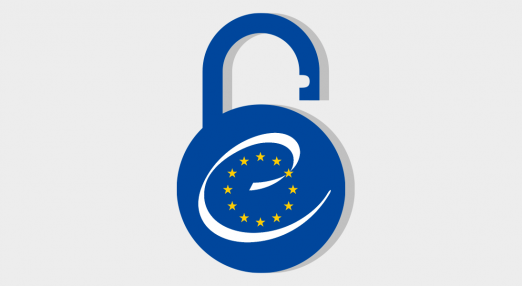Press release: European Commission jumps the gun with proposal to add facial recognition to EU-wide police database
The European Commission has put forward a proposal to ‘streamline’ the automated sharing of facial recognition images and other sensitive data by police across the EU. What will be discarded in order to ‘streamline’ the process? Vital safeguards which are designed to protect all of us from state over-reach and authoritarian mass surveillance practices.
Filter resources
-

Press release: European Commission jumps the gun with proposal to add facial recognition to EU-wide police database
The European Commission has put forward a proposal to ‘streamline’ the automated sharing of facial recognition images and other sensitive data by police across the EU. What will be discarded in order to ‘streamline’ the process? Vital safeguards which are designed to protect all of us from state over-reach and authoritarian mass surveillance practices.
Read more
-

EU ropes in intelligence agencies for enhanced border checks targeting Afghan nationals
Intensified border security checks targeting Afghan nationals have been agreed by the Council of the EU, with the procedures requiring the extraction of mobile phone data and significant coordination with national intelligence agencies – despite the EU having no competences in the realm of “national security”.
Read more
-

Booklet: Demonstrating gaps in the e-Evidence Regulation
The Regulation on cross border access to data by law enforcement (so-called “e-Evidence” Regulation) threatens to put the rights of journalists, lawyers, doctors, social workers and individuals in general at great risk. EDRi and 13 civil rights organisations have just launched four scenarios that clearly depict how our future could enfold if the Regulation is approved.
Read more
-

“E-evidence” state of play: Building compromises, sweeping rights under the carpet
Despite the Pegasus scandal which has sent shock waves across Europe, and served to shine a light on illegal surveillance practices used by governments, the Council and the European Parliament are moving closer to an agreement on a new data-harvesting tool that could be similarly abused.
Read more
-

EFF to Council of Europe: Flawed Cross Border Police Surveillance Treaty Needs Fixing
EDRi member Electronic Frontier Foundations (EFF) has joined European Digital Rights (EDRi), the Samuelson-Glushko Canadian Internet Policy & Public Interest Clinic (CIPPIC), and other civil society organizations in recommending 20 solid, comprehensive steps to strengthen human rights protections in the new cross border surveillance draft treaty that is under review by the Parliamentary Assembly of the Council of Europe (PACE). The recommendations aim to ensure that the draft treaty, which grants broad, intrusive police powers to access user information in criminal cross border investigations, contains a robust baseline to safeguard privacy and data protection.
Read more
-

Council of Europe’s Actions Belie its Pledges to Involve Civil Society in Development of Cross Border Police Powers Treaty
As the Council of Europe’s flawed cross border surveillance treaty moves through its final phases of approval, time is running out to ensure cross-border investigations occur with robust privacy and human rights safeguards in place. The treaty’s drafting process has been deeply flawed, with civil society groups, defense attorneys, and even data protection regulators largely sidelined.
Read more
-

Fear and loathing in the UK adequacy decision
The Council of the European Union unanimously approved the United Kingdom (UK) draft adequacy decision. In an ideal world, this would indicate that the UK offers an adequate level of protection for personal data, and would signal their willingness to retain those standards. Unfortunately, reality tells a different story, that should be worrying for human rights advocates on both sides of the channel.
Read more
-

Civil society warn against rushed global treaty for intrusive cross-border police powers
European Digital Rights (EDRi), Electronic Frontier Foundation (EFF) and 40 other civil society organisations urge the Council of Europe’s (CoE) Parliamentary Committee (PACE) to give them more time to provide much-needed analysis and feedback on the flawed cross border surveillance treaty recently approved by its Cybersecurity Committee (T-CY).
Read more
-

“E-evidence” negotiations: a call to protect media freedoms and democratic rights from abusive cross-border orders
Together with a coalition of 25 organisations and companies, European Digital Rights (EDRi) urges the European Parliament and the Council to uphold a high level of procedural safeguards in their negotiations on the so-called “e-evidence Regulation”.
Read more
-

New Cybercrime Protocol: weak safeguards against big risks of abuse
In 2017, the Council of Europe (CoE) and its Cybercrime Committee started preparing an additional protocol to the Budapest Convention on Cybercrime – a new tool for law enforcement authorities (LEAs) to have access to data held by private companies in the context of criminal investigations.
Read more
-

EDRi challenges expansion of police surveillance via Prüm
The Prüm framework permits police forces of EU Member States to exchange DNA files, fingerprints, vehicle data via a decentralised system. The European Commission and the Council are pushing for a “Next Generation Prüm” in which facial images, firearms data, driving licenses, extracts of police records, data about third-country nationals and many additional types of data could be shared via the system.
Read more
-

Eurodac database repurposed to surveil migrants
Eurodac is the EU database used to store asylum seekers’ and refugees’ data, as well as certain categories of “irregular” migrants. By the end of 2019, the EU stored almost 6 million peoples’ fingerprint sets in the database. Research show how legislative developments transform the Eurodac database into “a powerful tool for mass surveillance”, endangering migrants' fundamental human rights.
Read more
